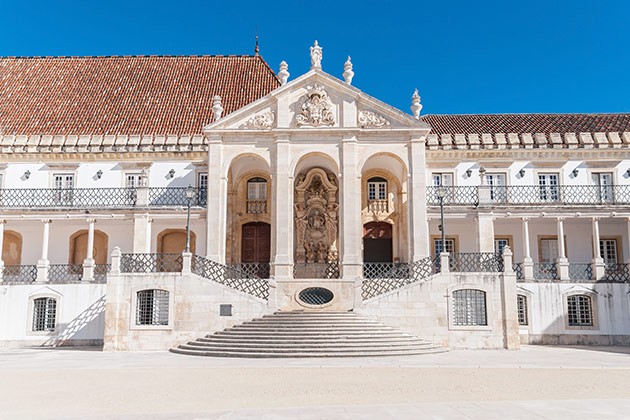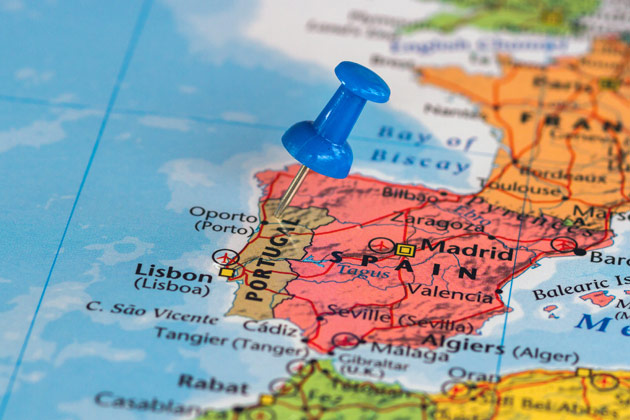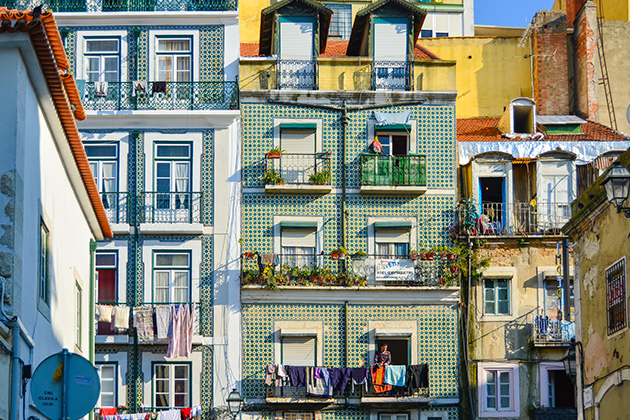
New career opportunities, developing critical thinking and adding colour to your curriculum are only a few of the reasons why getting a doctorate can be a good choice for your professional life. However, when it comes down to the crunch, one of the factors you’ll have to consider is where to go – in the end, the desire to expand your horizons may very well translate into finding a foreign country in which to study. If this is the case with you, then Portugal is a destination to keep in mind, as we explain in the following seven points.
1. Proficiency in English
The Portuguese are among the best in the world at speaking English. According to a study by the international teaching company EF Education First, Portugal has one of the highest proficiency rates for English, ranking 12th. English is taught as a mandatory second language from grade 5 onwards and is spoken today by most of the population. English songs are often played on the radio and films on television and in the cinema are generally not dubbed, but subtitled. Academically, there is a growing tendency to offer English language programmes. The ISCTE, in Lisbon, for instance, has 22 doctorate programmes and eight are taught in English.
2. Multicultural atmosphere
Portugal has had its arms stretched out to the world since the XV Century, and currently ranks second in terms of welcoming migrants, according to the Migrant Integration Policy Index. Over recent years the number of foreigners enrolled in university level institutions has more than doubled, which has helped shape the reality in terms of study and research, making Portugal more open and international. Here you can expect to find a people renowned for their tolerance, openness to multiculturalism and taste for diversity. Several languages are spoken on the campuses of Portuguese universities and a growing number of classes are taught in English.
3. Recognised quality teaching

All university level educational institutions are evaluated and accredited, according to the highest international standards, and some have scored highly in the main international rankings. Portugal is an active member of several international scientific organisations (ESA, ESO, CERN, EMBL, EMBO, ESRF, JET, among others) and has established long-term relationships with world leading institutions such as the Massachusetts Institute of Technology (MIT), Carnegie Mellon, the University of Texas in Austin, the Fraunhofer Institute and the Ismaili Imamat.
In the case of the MIT, for example, we are currently in the third phase of the MIT Portugal Partnership 2030 (MPP2030), a strategic partnership between Portuguese universities, research institutions, the MIT, the Portuguese Government, industry partners and other non-academic institutions. The goal is to boost research in four key fields: Climate Sciences and Climate Change, Terrestrial Systems, Digital Transformation in Industry and Sustainable Cities.
4. Investment in research and innovation
According to the European Scoreboard 2020, that compares performances in terms of research and innovation between European Union member states and others, Portugal is ranked among the “strong innovators”, the second best category, after “innovation leaders”. One of the criteria considered for this classification is precisely the number of foreign doctorate students in the country. This is one of the dimensions of the “attractive innovation systems”, which also takes into account “international scientific co-publications” and “most quoted publications”.
According to the same index, Portugal is an innovation leader in small and medium companies. Over the past years we have witnessed unparalleled growth in the incubation and acceleration of businesses in Portugal, which more than ever before has been attracting creators and innovators from all fields, providing them with the best conditions to work.
5. State scholarships
Portugal has a state financed public tender programme for doctorate scholarships. Every year the Fundação para a Ciência e Tecnologia attributes doctorate scholarships to support advanced research.
A jury is named for each field, made up of teachers from a variety of institutions and the judging criteria includes the project in itself, the candidate’s curriculum and the institution to which one applies. Around 30% of students get scholarships. The scholarships are open to citizens of Portugal, the European Union, other states, stateless people and those who have obtained refugee status. Brazilian citizens can apply, provided they have adhered to the Statute of Equal Rights and Duties.
You can look up other funding opportunities on the Euraxess website, that lists openings and scholarships for several regions in the world, including 40 European countries. On the other hand, some institutions have their own doctorate scholarships, such as the University of Lisbon, so make sure to search the university websites as well.
Other institutions that offer scholarships are the Instituto Camões; the Fulbright Commission; the Luso-American Foundation; the Calouste Gulbenkian Foundation; Cidade de Lisboa Foundation and Santander bank.
6. Low cost of living

Portugal has the second lowest cost of living in Western Europe, according to the Expatistan index. This means that things such as food, transport, housing and education are less expensive than in the vast majority of European countries. Regarding the cost of a doctorate, bear in mind that both public and private institutions charge tuition. The amount varies according to the programme and the institution, and you can check out the average costs here.
7. Safety and quality of life
A pleasant climate with 3000 hours of sun per year, an 850 km long coastline of white sandy beaches, endless and diverse protected landscapes, a world-renowned cuisine, a vast historical heritage, nice and welcoming people. These are just a few of the aspects that make Portugal one of the best countries to live in, as is proved by the fact that the country ranks as third best destination in the world, according to the Expat Insider 2019 index.
According to the OECD’s Better Life Index, Portugal ranks higher than average in terms of housing, balance between personal and work life, environmental quality and personal safety. It is also considered one of the safest countries in the world. According to the Global Peace Index Portugal rose one position and now ranks third in terms of safest countries in which to live. If you are thinking of doing a doctorate, this could well be an important criterion in terms choosing your destination, in the knowledge that you can enjoy peaceful days with your family and focus completely on your studies.
Take note
For more information on doctorates in Portugal, check out the official website, with all you need to know about studying and research in Portugal.



